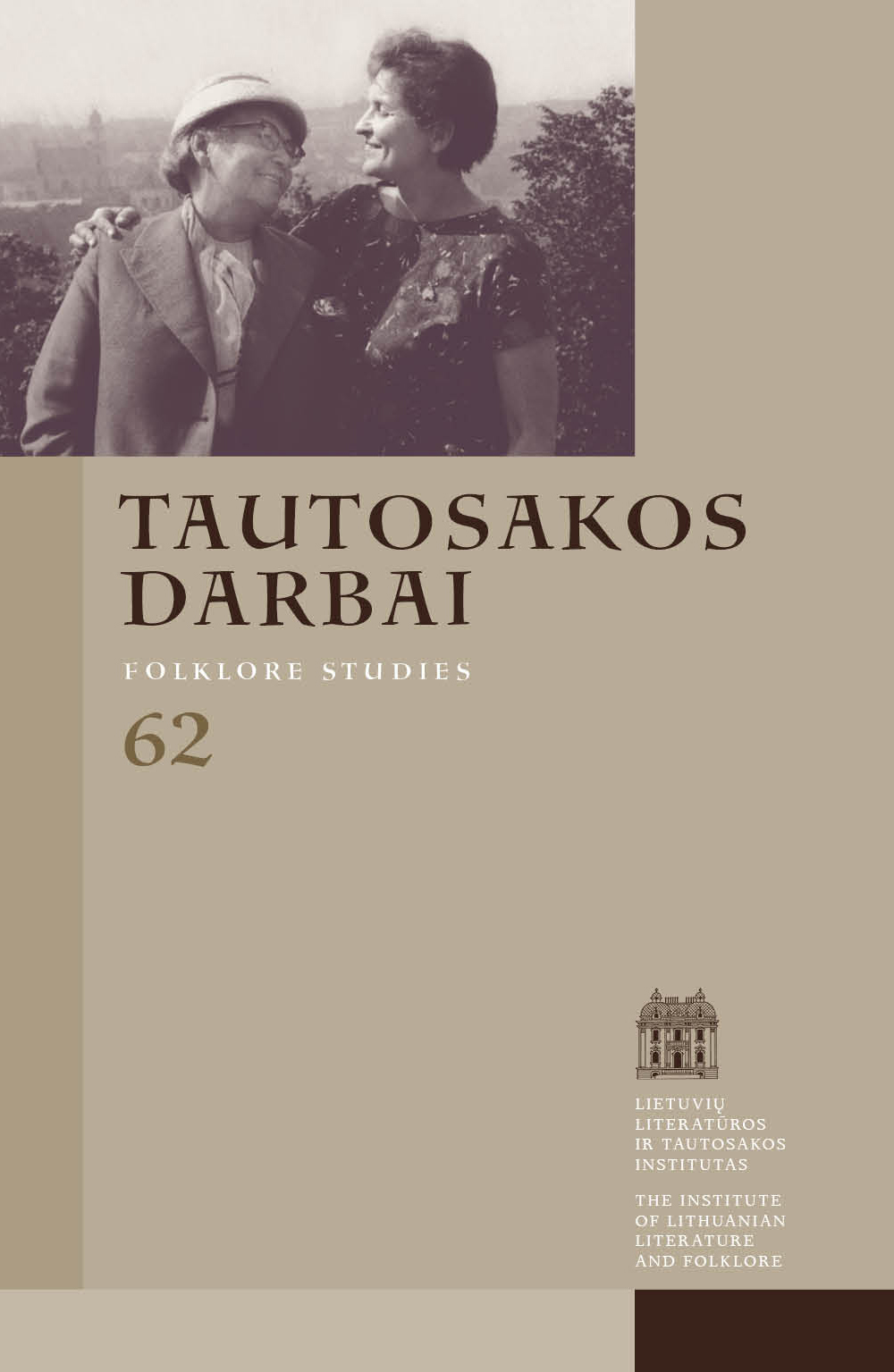Prie gyvybės medžio šaknų: Marija Gimbutienė šeimos moterų draugijoje
Santrauka
Marijos Gimbutienės ‒ mokslininkės, teoretikės ir archeologės praktikės, veiklios, įvairiapusiškos ir jautrios asmenybės – intelektualinis palikimas, ypač lituanistinė jo dalis, iki šiol yra palyginti mažai tyrinėta. Šiame straipsnyje atskleidžiamas M. Gimbutienės ryšys su šeima ir išryškinamas jos santykis su mama Veronika Janulaityte-Alseikiene. Straipsnio autorė kelia ir pagrindžia mintį, kad ypatingas ryšys su mama ir kitomis šeimos moterimis, jų pavyzdys ir autoritetas padėjo M. Gimbutienei įžvelgti ir atpažinti archeologinėje medžiagoje veiklų ir kūrybišką moteriškąjį pradą bei sudarė prielaidas ieškoti moteriškųjų deivių pasaulio archeologinėse kultūrose.
Atsisiuntimai
Nėra atsisiuntimų.
Skaitomiausi šio autoriaus(ų) straipsniai
- Daiva Vaitkevičienė, Užkalbėti ir melsti: švelnioji galia lietuvių užkalbėjimuose , Tautosakos darbai: T 64 (2022)
- Daiva Vaitkevičienė, „Užkalbėjimas“, „žadėjimas“ ir „vardijimas“: eminės terminologijos metmenys , Tautosakos darbai: T 67 (2024): Tautosakos darbai
- Austė Nakienė, Daiva Vaitkevičienė, Vita Džekčioriūtė-Medeišienė, Gražina Kadžytė, Aurimas Bačiulis, Vida Savoniakaitė, Lina Būgienė, Kronika , Tautosakos darbai: T 55 (2018)
- Daiva Vaitkevičienė, Midus baltų visuomenėje: nuo bitininkų iki diduomenės , Tautosakos darbai: T 51 (2016)
- Daiva Vaitkevičienė, Greimo mitologijos tyrimų takais , Tautosakos darbai: T 53 (2017)
- Daiva Vaitkevičienė, Rolandas Petkevičius – lietuvių etnopsichiatrijos tyrėjas , Tautosakos darbai: T 54 (2017)
- Daiva Vaitkevičienė, Šventasis sambūvis: laukiniai gyvūnai žemdirbio sodyboje , Tautosakos darbai: T 56 (2018)
- Daiva Vaitkevičienė, Dainius Razauskas, Būti mitologu – su širdimi ir iš širdies. Daivos Vaitkevičienės pokalbis su Dainiumi Razausku , Tautosakos darbai: T 60 (2020)
- Daiva Vaitkevičienė, Knyga apie unikalų latvių užkalbėjimų rinkinį , Tautosakos darbai: T 61 (2021)
- Daiva Vaitkevičienė, Pratarmė , Tautosakos darbai: T 62 (2021)
